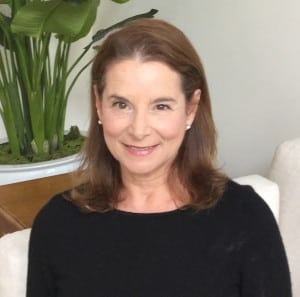“Every moment in my life I have a choice.
Moments add up to a lifetime,
choices add up to a life.”
Tal Ben Shahar
mind·ful·ness
ˈmīn(d)f(ə)lnəs/
noun
1.
the quality or state of being conscious or aware of something.
“their mindfulness of the wider cinematic tradition”
2.
a mental state achieved by focusing one’s awareness on the present moment, while calmly acknowledging and accepting one’s feelings, thoughts, and bodily sensations, used as a therapeutic technique.
Mindfulness is being aware of the moment and accepting it as it is. A lot of research is being done in this area of mindfulness because it is being shown that it reduces stress, boosts our immune system, and in time can build our resiliency. All very good things to bring into ones life. So how does one practice mindfulness? Do we have to go to the top of the mountain or become a Buddhist monk to achieve this? Our lives are not like that. We are busy living our lives with work, family, hobbies, self-care, and hopefully just being sometimes. Sometimes we are to busy and forget to stop and savor the moment. Mindfulness changes your brain – research has shown that meditation can lead to structural brain changes including increased grey matter density in the hippocampus known to be important for learning and memory and in structures associated with self awareness, compassion and introspection
Meditation recharges us if we are tired, stressed, or upset or just to center us at the beginning or ending of our day. Everyone approaches their meditation practice differently. I for one love to meditate at 5PM. My body and mind needs to be restored at that time. Meditation is a way for me to sit quietly, rest, restore, and appreciate my day. Some people can not begin their day with out their meditation practice.
With the recharged heart of thankfulness we will find many reasons to be grateful and positive.
Our mind and body are connected when you can meditate and quiet the mind for a moment it will signal to your body peace, calm, moment of joy and gratitude.
Meditation is a very powerful tool.
What works for you? Have you tried a meditation practice? There are many to choose from. Try finding one that resonates with you.
Scientific research has shown that meditation has many benefits for our well-being, including:
Increasing our ability to withstand stress
Making us feel more rested
Helping to relieve and reduce pain
Lowering our blood pressure
There has recently been a lot of research being done on the benefits of mindfulness in the workplace. Dr. Richard Davidson has been spearheading some of this research out of his Center for Investigating Healthy Minds.
Savoring life is another way to train our brains to become more mindful. Think of it as training a new muscle that you want to make stronger.
The ability to savor the positive experiences of your life is one of the most important ingredients to happiness.
Researchers define savoring as any thoughts or behaviors capable of “generating intensifying and prolonging enjoyment.”
Stop and smell the roses.
Bask with pride in a friends accomplishment.
Become aware of how much there is to enjoy in life.
When something is past (wedding, getting a job,trip) take a moment to remember it.
Or present moment ( good book, conversation, song) feel it, enjoy it.
Or future ( anticipating an upcoming event or trip).
It leads to confidence, hope, optimism flipping the lens or cleaning off the lens to see experiences in a new full way.
Become a connisour of your life sip and enjoy.
It takes dedication and willpower to appreciate things and stop taking them for granted and always remember what you appreciate appreciates!
Relish ordinary experiences:
Something you usually rush through ( a meal, dressing, walking, sex).
Sit down and write yourself a letter. Imagine you are 110 years old and you are writing a letter to your younger self. What would you say to yourself? Watch this wonderful 3 minute video for inspiration.
If you would like to integrate the tools of Positive Psychology and mindfulness into your life contact me for your free consultation so we can see how we can work together. I look forward to hearing from you.

Eva Centeno studied at the Whole Being Institute under the renowned Tal Ben Shahar and earned her Certificate in Positive Psychology. She is also a Certified Positive Psychology Coach from Whole Being Institute. As a Certified Positive Psychology Practitioner and Coach she saw the need to introduce others to these wonderful concepts. As an innovator she designed the FLIPP © Flourishing Life In Positive Psychology cards to introduce others to the scientific research that is being done in this field in a fun and positive way.
